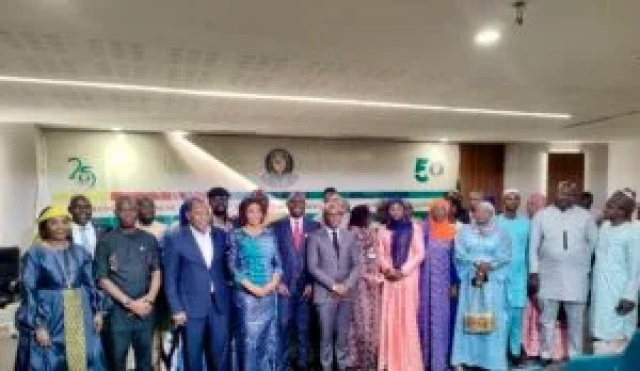The Speaker of the ECOWAS Parliament, Hadja Ibrahima, has emphasized the need for a robust legal framework to facilitate the development of Artificial Intelligence in West Africa.
This statement was made during a delocalised meeting of the parliament's Joint Committee in Dakar, Senegal, which centered on education, science, and digital innovation, under the theme ‘Prioritising Education Technology and Innovation in the ECOWAS Region.
Represented by the Second Deputy Speaker, Adjaratou Coulibaly, Ibrahima asserted that the subregion must embrace new educational models to align with global technological advancements.
She expressed optimism that the discussions in Dakar would lead to a clear recommendation for a community legal framework on AI.
Ibrahima highlighted the necessity of prioritizing digital transformation and innovation, particularly in education, to shape the subregion's future, stating, “This aligns with our parliamentary mandate and the aspirations of West African citizens.”
She also reminded attendees of a Protocol on Education and Training adopted in Dakar in 2003, which aimed to harmonize education and foster excellence.
Ibrahima noted that while ECOWAS has a young and dynamic population coupled with diverse cultures and growing economies, it still faces significant educational challenges.
She pointed out that traditional educational models are being scrutinized and acknowledged the progress made thus far but stated that issues persist, such as inadequate infrastructure, digital disparities, and slow adoption rates in some member states.
She stressed that for Africa to engage with the global knowledge economy, every child must have access to digital tools in schools.
Ibrahima called on participants to devise specific regional strategies to ensure inclusive digital learning and posed critical questions regarding the implications of AI potentially replacing teachers and how to maintain the human element in education.
She underscored the importance of cultivating a region where every child can learn, develop, and contribute to the collective prosperity.
Senegal’s Minister of National Education, Moustapha Guirassy, also addressed the meeting, encouraging Africa to position itself as both creators and regulators of AI, rather than merely consumers.
Guirassy mentioned that Senegal allocated 1,105 billion CFA for education, with 130 billion CFA dedicated specifically to digital education.
He highlighted that Senegal views AI as integral to its educational reform and is supported by a new technology agreement along with a national digital strategy for 2025–2029.
He pointed out that AI is currently being utilized to track school performance, and teachers have received training in basic AI concepts. Additionally, sensitization programs on algorithmic systems have been implemented for secondary students.
Guirassy proposed establishing a West African Pact on the application of AI in education, guided by a regional ethical charter and resources in African languages.




















